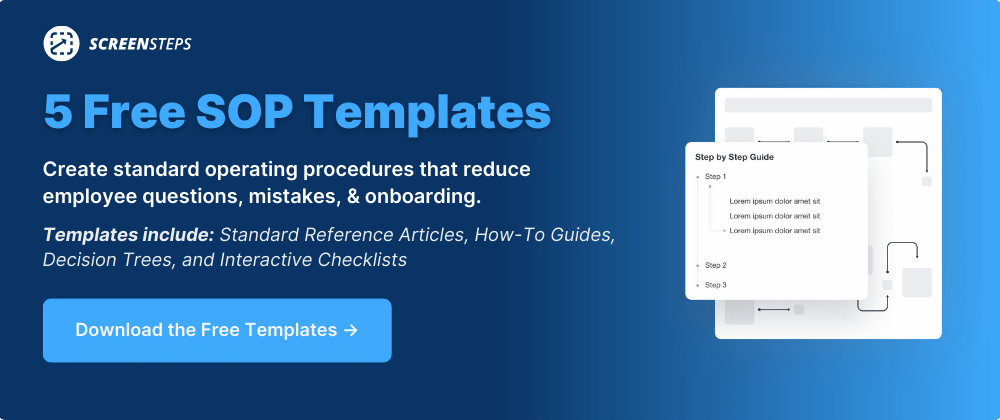Knowledge is the core of every business.
To run your business, you need the right information to get things done correctly. Transferring that information from one employee to another can be challenging.
While there are many different types of knowledge, in this blog post, we'll dive deeper into understanding explicit knowledge.
What is explicit knowledge?
Explicit knowledge is the information that can be captured and recorded. It is information that is easy to share via documentation.
Explicit knowledge includes facts, theories, procedures, and universal principles that are often found in manuals, databases, books, websites, and other tangible formats.
Another way to describe explicit knowledge is actionable knowledge. It is rote knowledge that people can memorize and recite back to you.
Examples of explicit knowledge
Some examples of how explicit knowledge is used in business are:
- Policies and procedures
- Training manuals and e-learning modules
- Business plans and strategies
- Product manuals
- Financial documents
Want to capture explicit knowledge?
Explicit knowledge makes up an important collection of information in your business. You need to be able to share that information with your employees. How do you do that? You do that by writing down your policies and procedures.
Are you ready to capture explicit knowledge in your business?
With a ScreenSteps knowledge ops platform, it is fast and easy to capture your standard operating procedures. You can capture a new procedure in minutes with authoring tools like the integrated screen capture feature.
If you are ready to start capturing your explicit knowledge, download the SOP template packet. In this packet, you'll have five different templates, including examples of how to write a how-to article, checklist, and decision trees.



